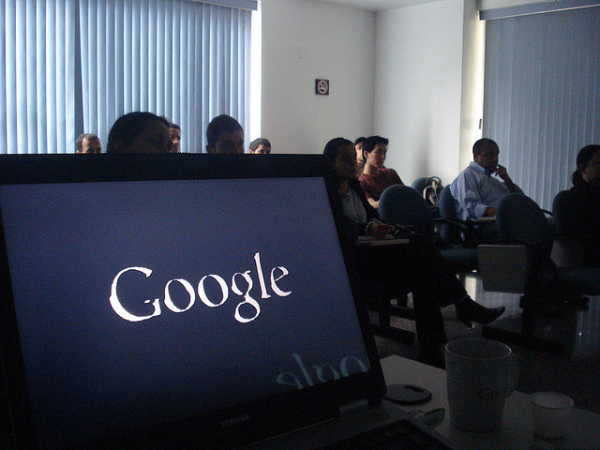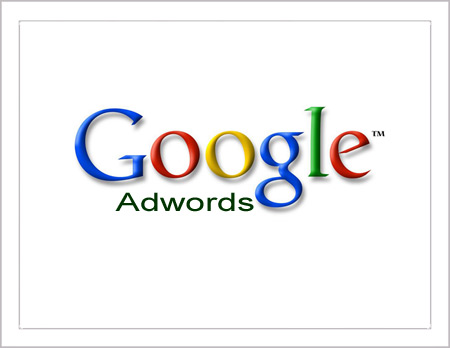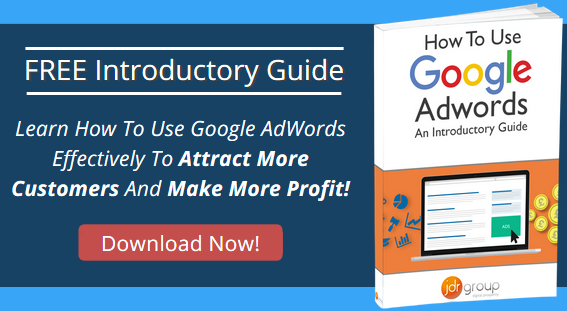Google Adwords Cost - A Quick Guide to How it Works
by Daniel Baker on 15-Nov-2013 12:01:00

Do you currently use traditional forms of advertising to promote your business message, but want something cheaper? Do you long for a less time-consuming option without restricting price lists and rates? This advertising ideal is now very achievable with Google Adwords.
So how does it work?
Google Adwords is successful because it only shows highly relevant and effective business ads, so they improve results using a PPC (pay per click) system. PPC means that you pay only when someone clicks on your Google ad. The amount of money you put into your campaign budget, and the amount you bid for clicks is up to you. This will, however, affect where your ads rank in the search results and how often they are shown.
The main advantages of using Adwords PPC to manage advertising costs are:
-
You choose where and when to spend your money
-
There is no minimum or maximum amount to spend on your campaigns
-
You can change your budget whenever you want – no contracts!
Reports on your ad costs and billing history are available at any time
Once you have set up your campaign and written your ads for specific pages of your website, it’s time to decide on your method of bidding for a position in the search rankings. Google will assess these bids in a virtual “auction” every time someone does a keyword search, to determine where exactly your ads will be shown.
To get the most value out of your bid spend, CLICK HERE to get a free “Profitable Website” report. It will advise you how to turn more ad clicks into paying customers.
Here are your options for bidding on Adwords:
Option 1: CPC
This means cost per click (based on PPC) and is the most common and highly recommended Adwords bidding method. If you drive specific target customers to your website, it is a very cost effective way to manage your ad budget, as you will only pay when people click on your ad. This isn’t as cost effective if you expect high volumes of traffic on a daily basis.
Option 2: CPM
The CPM (cost per thousand impressions) bidding method is only used for the Display Network. This is because you are shown more often on any related websites that display AdSense ads. If you sell a mainstream, attention-grabbing product or service and want maximum exposure, this is the bidding type for you.
Option 3: CPA
CPA means cost per acquisition. You can only start CPA bidding if you have conversion tracking in place, because it gives you a total cost for winning each sale/conversion. This method is recommended for experienced Google Adwords users who want to monitor sign-ups, sales and return on investment (ROI) in depth.
Now you know how Adwords PPC works and what other bid options you can choose from, you are probably wondering exactly what to set as your cost per click. This might sound like a hassle, but you can easily alter your cost per click based on ad performance and budget changes through Google Adwords’ automated auction system.
Setting your Adwords PPC spend
CPC (cost per click) is the simplest and most common example to use here. To enter the competitive bidding arena for ad clicks, simply follow these steps:
1. Set your monthly campaign budget –
You should set it to at least £200 per month to see quicker return on investment, but this can vary depending on your business niche and expected monthly website traffic.
2. Work out your daily budget -
Divide your monthly budget by 30 to arrive at a sensible daily budget. The important rule here is to always bid for ad rankings well within this figure, although Google Adwords regulates this using the maximum CPC metric.
3. Set your maximum CPC –
To ensure you don’t exceed your daily budget, you can easily enter a maximum CPC for each keyword bid. For example if you set it to £1 (on a £7 per day budget), you will pay no more than £1 when someone clicks on one of your ads. Your CPC will often be less than this (known as your actual CPC), depending on:
-
What your competitors are paying
-
How relevant and closely matched your keywords, ads and landing pages are
How much you should spend on Adwords
Many business owners who want to know the cost of Adwords are unsure exactly what their cost per click should be, and how it will affect their campaign. This is where Adwords’ auctioning system comes into play.
When you add a keyword search term for an ad, you will be given a minimum bid price to get onto page one of the search term. Bid prices are usually between 4p and £4, depending on keyword competitiveness. As long as the price is safely within your daily budget and doesn’t exceed your chosen maximum CPC, you can bid any amount to affect your ad position in the rankings – for that keyword.
Tip: If you want to get higher in the search rankings on for keywords that exceed your maximum CPC, you don’t always have to raise your bids. Optimising keyword, ad and landing page relevance allows you to climb the rankings ladder and pay less per click.
So there you have it; a simple guide to the workings of Google Adwords costing’s. As long as you know your target market, you can adjust your bid investments in all areas of your campaign to dramatic effect, making it a major factor in the acquisition of more valuable customers. Google Adwords PPC really is the most cost-effective business advertising solution for the future.
Article by: Laura Wootton
Additional Resources:
http://www.google.com/adwords/how-it-works/costs.html
https://support.google.com/adwords/answer/1704424?hl=en
- Inbound Marketing (SEO, PPC, Social Media, Video) (831)
- Strategy (368)
- Sales & CRM (197)
- Marketing Automation & Email Marketing (190)
- Business Growth (168)
- Website Design (162)
- Hubspot (141)
- Lead Generation (117)
- Google Adwords (100)
- Content Marketing (94)
- Conversion (53)
- Case Studies (49)
- News (47)
- Ecommerce (39)
- Webinars (34)
- SEO (26)
- AI (20)
- Events (19)
- LinkedIn Advertising (17)
- Video (17)
- Video Selling (15)
- Software training (13)
- Niche business marketing (11)
- The Digital Prosperity Podcast (10)
- HubSpot Case Studies (7)
- Facebook Advertising (6)
- Web Design Case Studies (1)
- February 2026 (2)
- January 2026 (12)
- December 2025 (15)
- November 2025 (6)
- October 2025 (17)
- September 2025 (16)
- August 2025 (14)
- July 2025 (14)
- June 2025 (5)
- May 2025 (19)
- April 2025 (15)
- March 2025 (13)
- February 2025 (13)
- January 2025 (8)
- December 2024 (2)
- November 2024 (4)
- October 2024 (21)
- September 2024 (4)
- August 2024 (8)
- July 2024 (14)
- June 2024 (16)
- May 2024 (25)
- April 2024 (15)
- March 2024 (18)
- February 2024 (5)
- January 2024 (10)
- December 2023 (6)
- November 2023 (10)
- October 2023 (13)
- September 2023 (12)
- August 2023 (14)
- July 2023 (13)
- June 2023 (14)
- May 2023 (15)
- April 2023 (13)
- March 2023 (14)
- February 2023 (13)
- January 2023 (15)
- December 2022 (13)
- November 2022 (6)
- October 2022 (8)
- September 2022 (22)
- August 2022 (15)
- July 2022 (13)
- June 2022 (16)
- May 2022 (14)
- April 2022 (16)
- March 2022 (17)
- February 2022 (11)
- January 2022 (8)
- December 2021 (6)
- November 2021 (7)
- October 2021 (11)
- September 2021 (10)
- August 2021 (7)
- July 2021 (7)
- June 2021 (4)
- May 2021 (4)
- April 2021 (1)
- March 2021 (3)
- February 2021 (5)
- January 2021 (4)
- December 2020 (7)
- November 2020 (6)
- October 2020 (5)
- September 2020 (9)
- August 2020 (18)
- July 2020 (17)
- June 2020 (17)
- May 2020 (10)
- April 2020 (21)
- March 2020 (24)
- February 2020 (21)
- January 2020 (12)
- December 2019 (23)
- November 2019 (12)
- October 2019 (14)
- September 2019 (16)
- August 2019 (15)
- July 2019 (13)
- June 2019 (6)
- May 2019 (8)
- April 2019 (4)
- March 2019 (2)
- February 2019 (2)
- January 2019 (2)
- December 2018 (3)
- November 2018 (24)
- September 2018 (11)
- August 2018 (9)
- June 2018 (3)
- May 2018 (6)
- April 2018 (14)
- March 2018 (12)
- February 2018 (16)
- January 2018 (15)
- December 2017 (15)
- November 2017 (18)
- October 2017 (23)
- September 2017 (19)
- August 2017 (28)
- July 2017 (27)
- June 2017 (25)
- May 2017 (18)
- April 2017 (17)
- March 2017 (16)
- February 2017 (17)
- January 2017 (14)
- December 2016 (21)
- November 2016 (27)
- October 2016 (25)
- September 2016 (16)
- August 2016 (20)
- July 2016 (19)
- June 2016 (14)
- May 2016 (20)
- April 2016 (24)
- March 2016 (22)
- February 2016 (28)
- January 2016 (27)
- December 2015 (28)
- November 2015 (19)
- October 2015 (9)
- September 2015 (12)
- August 2015 (5)
- July 2015 (1)
- June 2015 (10)
- May 2015 (3)
- April 2015 (11)
- March 2015 (14)
- February 2015 (15)
- January 2015 (12)
- December 2014 (2)
- November 2014 (23)
- October 2014 (2)
- September 2014 (2)
- August 2014 (2)
- July 2014 (2)
- June 2014 (7)
- May 2014 (14)
- April 2014 (14)
- March 2014 (7)
- February 2014 (2)
- January 2014 (7)
- December 2013 (9)
- November 2013 (14)
- October 2013 (17)
- September 2013 (3)
- August 2013 (6)
- July 2013 (8)
- June 2013 (4)
- May 2013 (3)
- April 2013 (6)
- March 2013 (6)
- February 2013 (7)
- January 2013 (5)
- December 2012 (3)
- November 2012 (2)
- September 2012 (1)
Subscribe by email
You May Also Like
These Related Blogs
Is Google AdWords Working for your Business? How to Review a PPC Campaign
Google AdWords can increase the traffic and awareness of your website. This marking tool is a great way to market your products or services to a relev …

Does Google Adwords Work?
Find out if you can use Google Adwords to increase your income today! Many business directors who are keen to develop their business and take it in ne …

Google Adwords Extensions: A Guide for Marketing Managers
There are well over 1 million Google Adwords advertisers at the moment and over 2 million Google AdSense publishers around the world – and this number …



